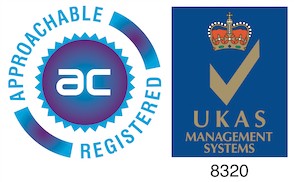Facebook Ads Targeted At Minors To Be Restricted
Facebook ads are used by brands around the world to place their product or service in-front of those who are most likely to buy it. Marketers spend hours planning their ad strategy in order to maximise their budget and make sure the right people are seeing it – but what if the target audience are minors?
Facebook has recently announced that it will clamp down on ads targeted at users under 18 in an attempt to protect minors who use the platform. We look at what this change means for users and the larger issues of age verification on social media sites.
What Has Changed?
If you have ever created Facebook ads before, you’ll understand just how complex the targeting can be. Not only can you currently target users based on their location and age, but you can also focus on those who work in a particular field, those who use mobile devices or like a certain brand.
While this kind of targeting can prove extremely useful for brands, it also raises some questions about the protection of minors. In response to these questions, Facebook has recently announced that it will stop allowing advertisers to target minors based on their interests. Going forward, advertisers will only be able to target under 18s by age, location or gender across its channels.
Why The Move From Facebook?
According to reports, the reason for this change stemmed from advice from youth advocates who argue that minors aren’t equipped to make decisions about how they should be targeted. While there will be no changes to the data collected, Facebook is saying it will be ensuring that minors are protected.
This isn’t the only change that Facebook has recently made to its policies across social channels. Any new users to Instagram under 16 years old, will be defaulted into having a private account. These users will have the option to switch to a public account but with the default setting already there, Facebook believes that there will be more protections in place.
There has been a lot of speculation over the safety of social channels for both minors and adults who may be targeted by unwanted messages. It is clear that Facebook is trying to address some of those concerns without adversely affecting the revenue that comes from advertising across Facebook, Messenger and Instagram.
Age Verification on Social Media
Over the years, there have been a lot of debates over age verification on social channels. With no real need to submit a photo ID when signing up to a new social channel, minors are able to access content that isn’t meant for them.
According to Facebook, this is set to change as they continue to use artificial intelligence to improve their current verification system and remove underage accounts. Hopefully, this will help to protect minors online and restrict any content that isn’t deemed age-appropriate.
AgeChecked is committed to protecting minors online and so welcomes these changes by Facebook to their current policy. We offer a range of age verification solutions for content, as well as the sale of age-restricted goods. These solutions offer privacy and allow adults to enjoy services without any disruption. Get in touch today to find out how we can help.






